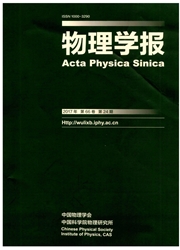

 中文摘要:
中文摘要:
空间天气影响下的钢制油气管道会产生地磁感应电流,地磁感应电流能够加速管道腐蚀,干扰管道监测装置,危及人身安全.为了研究管道地磁感应电流的非线性动力学特性,首先基于线传输理论,建立了管道地磁感应电流模型,并应用Melnikov方法对模型进行分析,揭示了地磁场与管道系统相互作用而产生混沌的机理,指出管道地磁感应电流具有出现混沌的可能性.其次,以中国西气东输一线管道中卫处6次磁暴事件数据为例,依据功率谱分析法、主分量法、关联维数法、Lyapunov指数法等多种混沌判别方法,对计算得到的地磁感应电流时间序列作了定量和定性的分析,进一步验证理论分析的结果.数学模型和实际数据两方面都表明:在空间天气影响下,埋地钢制管道系统内的地磁感应电流具有混沌特性,为空间天气影响下的钢制油气管道保护提供了理论依据.
 英文摘要:
英文摘要:
Variations of the geomagnetic field drive geomagnetically induced currents (GIC) in the buried steel pipelines, which may contribute to the pipeline corrosion and the pipeline network interfered by the solar wind and magnetic storm, are actually a complex nonlinear dynamical system. This paper shows that the induced current in the buried steel pipeline system has chaotic characteristics. To prove this, we first establish the lump-constant geomagnetic interference model based on the distributed source transmission line theory. Then we analyze this model by using Melnikov method and find out the condition under which the chaotic phenomenon will occur. In order to get a sufficient proof to validate the existence of chaos in pipelines, we also obtain the actual GIC time series by utilizing the measured data provided by national geomagnetic observatory and analyze its chaotic characteristics using multiple chaotic criteria. Analysis results of both the model and the measured data indicate that the pipeline's GICs have chaotic characteristics. This provides a theoretical basis for protecting pipeline from the effects of space weather.
 同期刊论文项目
同期刊论文项目
 同项目期刊论文
同项目期刊论文
 期刊信息
期刊信息
